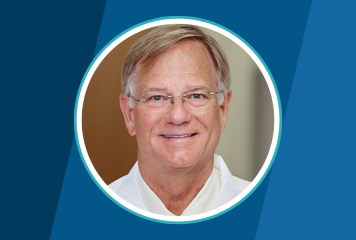Why did you want to become a physician?
 I originally applied to medical school because I was enamored with medical television shows, such as Marcus Welby, MD, Medical Center and Ben Casey, that I thought were based in reality. My reasons for applying to medical school turned out to have no bearing on why studying medicine became the greatest decision I ever made. My concept of what I was getting into had no resemblance to what I found. The reality of the profession is that there is very little drama, a lot of emotional support of patients and an enormous learning curve to master clinical care. I was fortunate with the way things turned out but career decisions made at the age of 19 or 20 are not reflective of what ultimately translates to career satisfaction.
I originally applied to medical school because I was enamored with medical television shows, such as Marcus Welby, MD, Medical Center and Ben Casey, that I thought were based in reality. My reasons for applying to medical school turned out to have no bearing on why studying medicine became the greatest decision I ever made. My concept of what I was getting into had no resemblance to what I found. The reality of the profession is that there is very little drama, a lot of emotional support of patients and an enormous learning curve to master clinical care. I was fortunate with the way things turned out but career decisions made at the age of 19 or 20 are not reflective of what ultimately translates to career satisfaction.
What is the best advice someone gave you about being a doctor?
Listen to the patient and help make things understandable for them.
What’s been the proudest moment of your career?
Mastership in the American College of Physicians.
When you talk about the work you do, what do you like to talk about?
I like to talk about the feeling patients give me when they say the trip to see me was worth the expense. It’s a great feeling.
What’s one of the biggest misconceptions about doctors?
There’s an incorrect assumption that doctors function as a closed shop, and another misconception is that their sole motivation is not what is best for patients. In reality, I believe the profession is among the most selfless and will sacrifice relationships and outside interests to serve patients and the profession.
How would you describe your experience of joining and serving on an ABIM Board Exam Committee?
Before I joined the Hematology Board Exam Committee, I didn’t know that ABIM exams undergo amazing rigor to ensure fairness and lucidity for the test takers. I’ve since learned that there is a high level of cooperation and comradery among extremely qualified hematologists who have an impressive breadth of knowledge to develop the exam.
I find the creation of ABIM questions to be a learning experience and a way to be certain that physicians meet the highest expectations for our patient population. ABIM test development is not trivial, and it’s a time commitment. But for me, it’s an opportunity to contribute to the knowledge base of hematology learners and it adds a completely new career dimension to medical practice.
What are your personal interests?
I am an avid bridge player and I love spending time with my family.



